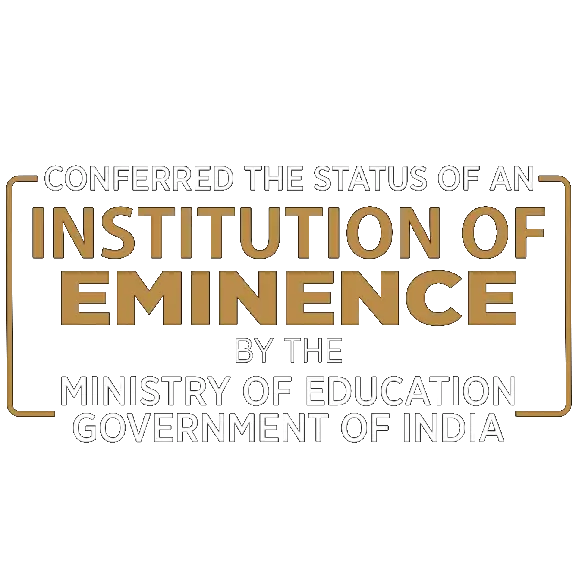The Jindal School of Psychology & Counselling (JSPC) is dedicated to educating and training students in the psychological sciences. Experiential learning is provided by our world-renowned faculty members, all of whom are actively engaged in innovative research. As one of the premier institutes for psychology and counselling in India, JSPC offers a broad but rigorous curriculum designed to equip students with the necessary knowledge and skills to successfully enter the employment sector or pursue post-graduate education.
Students
University Faculty & Staff
Collaborations with International Universities
Alumni Network
Publications


















Psychology has emerged as a dynamic and impactful field the last few decades, attracting students who are curious about human behaviour and mental processes. Whether you’re considering a Bachelor’s or Master’s degree in Psychology, it's important to understand each programme’s academic path, career scope, and relevance. In India, undergraduate and postgraduate psychology courses are gaining popularity due to increasing mental health awareness and the growing demand for qualified professionals.
Deciding to pursue the B.A. / B.Sc. Honours programmes are often the first big step for students interested in this field. The undergraduate degree focuses deeply on core psychological theories, research methods, and practical applications. It allows students to explore the subject at a more advanced level right from the start.
The structure of the psychology honours programme is ideal for those with an interest in the psychological sciences. It consists of core coursework in areas like cognitive science, social relationships, development, personality, and statistics forming a solid academic foundation for future specialisation. If you're someone who enjoys observing behaviour, asking questions about human emotions, or wants to work in mental health, education, or human resources, the psychology B.A. / B.Sc. Honours degree can be the right fit.
Psychology as a field covers virtually every aspect of human life, from birth and development to education and occupation to social relationships. There are several branches in psychology, each focusing on different aspects of human life and behaviour. Students starting the B.A. / B.Sc. (Hons.) Psychology degrees are introduced to the many facets of psychology, including:
Throughout the B.A. / B.Sc. programme, exposure to all these areas helps you decide where your real interest lies, making it easier to choose a focused path for postgraduate study or employment.
Many students wonder about the distinction between the B.A. and B.Sc. psychology degrees. While both degrees are recognised undergraduate qualifications, they differ in focus and structure.
The B.A. (Hons.) programme tends to focus more on the social and cultural aspects of psychology, whereas the B.Sc. (Hons.) programme delves deeper into the biological and medical-based aspects of psychology.
The B.A. Honours in Psychology and B.Sc. Honours in Psychology at Jindal School of Psychology & Counselling (JSPC) stands out for its innovative, multidisciplinary approach. These programmes are thoughtfully designed to give students a strong foundation in core psychological theories, while also allowing them to explore diverse elective courses tailored to their unique interests and career goals. Whether you're passionate about mental health, cognitive science, or criminal and forensic psychology, you’ll find a path that suits your aspirations.
Students gain valuable real-world experience through practicum sessions, internships, and collaborative projects. JSPC has a state-of-the-art Brain and Behaviour Laboratory for students and a dedicated Psychology Research Lab for faculty, ensuring rich opportunities for experiential learning and academic research.
The B.A. / B.Sc. Psychology degrees offer more than academic knowledge. The curriculum is designed to build critical thinking, emotional intelligence, and research skills. These are the qualities that are highly valued in the modern-age competitive job market. Graduates are well-prepared for careers in counselling, education, healthcare, HR, or research.
Students also have the option to graduate with a B.Sc. (Hons.) degree or B.A. (Hons.) with Research degree. The latter requires specialized instruction in experimental research design, data collection, and analysis. Students must complete a Thesis during their final (fourth) year of study.
The programme also offers a multi-disciplinary approach, where students can complete minor certification from other schools of JGU. Once requisite coursework is completed, students will graduate with a disciplinary minor.
At JSPC, students become part of a vibrant intellectual community committed to personal growth, academic excellence, and meaningful societal impact. This is where future psychologists are shaped.
A Master of Science in Counselling Psychology is a significant academic and professional step for individuals aiming to specialise in mental health and therapeutic practice. It builds upon undergraduate foundations by introducing advanced concepts in psychological theory, counselling models, psychopathology, and ethical practice.
Pursuing an M.Sc. in Counselling Psychology is particularly relevant for roles in mental health services, educational institutions, and community-based organisations. With growing awareness and demand for mental health support, many hospitals, NGOs, schools, and government agencies now prioritise candidates with postgraduate qualifications. The programme typically includes supervised practical training, case analysis, psychological assessments, and a research dissertation, all strengthening clinical and analytical skills.
A frequent query among psychology graduates is the distinction between an M.A. and an M.Sc. in Psychology. While both are recognised postgraduate qualifications, they differ in focus and structure. An M.A. in Psychology often leans towards theoretical and qualitative approaches, with emphasis on humanities-based perspectives in human behaviour, counselling, and social psychology.
In contrast, an M.Sc. in Psychology—particularly in Counselling Psychology—is more practice-oriented and grounded in empirical methods. It includes training in diagnostics, therapeutic interventions, and evidence-based research. This path is particularly suitable for those intending to work in clinical or counselling settings or to pursue licensure as a mental health professional.
Your choice between the two should be guided by your academic background, career aspirations, and preferred approach to psychological practice—whether research-driven or client-facing.
Graduates with an M.Sc. in Counselling Psychology gain skills for a range of professional roles across mental health, education, and organisational settings. Some common career options include:
These roles require a blend of empathy, critical thinking, communication, and the ability to apply psychological knowledge in real-world contexts. Practical training during the M.Sc. plays a crucial role in preparing graduates to meet the dynamic needs of individuals and communities.
Many students wonder if psychology leads to stable or meaningful work. The answer depends on how you view your goals. Psychology offers a wide range of professional paths. Some focused on helping others directly, while others are more research-based or corporate in nature.
It’s a good career choice if you're interested in human wellbeing, communication, problem-solving, or social development. Roles in counselling, teaching, human resources, marketing, and public policy all benefit from a psychology background. With increasing attention to mental health and workplace wellness, both public and private sectors are actively hiring psychology graduates.
A strong academic foundation through the B.A. / B.Sc. (Hons.) degree in Psychology and work experience can help you find a place where your passion meets professional need. Career options only expand further once the M.Sc. in Counselling Psychology is completed.
Choosing to study psychology is a personal and professional decision that shapes how you understand people and yourself. From the foundational undergraduate years of a B.A. / B.Sc. (Hons.) Psychology degree to the focused learning of an M.Sc. in Counselling Psychology, each programme at JSPC is designed to build your ability to think critically, listen deeply, and contribute meaningfully.
At Jindal School of Psychology & Counselling, one of the leading universities for psychology courses, your journey through the subject can lead to impactful, fulfilling work. What matters most is that you stay curious, ask the right questions, and take steps that align with your purpose.